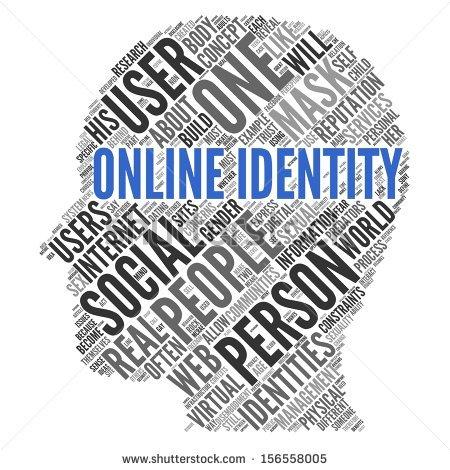
What Is Online Identity? Understanding Your Digital Presence
In today’s hyper-connected world, the concept of online identity is more important than ever. Your online identity represents the collection of information, traits, and behaviors associated with your digital persona across the internet. Whether you realize it or not, your online identity shapes how others perceive you, from potential employers and friends to businesses and strangers.
What Exactly Is Online Identity?
Online identity, often interchangeably called digital identity or internet identity, refers to the information about an individual or entity that exists and can be discovered on the internet. It includes usernames, social media profiles, email addresses, digital footprints, user-generated content, and any other digital traces that define who you are online.
Key Components of Online Identity
- Personal Information: Name, date of birth, location, and contact details you share online.
- Social Media Profiles: Accounts on platforms like Facebook, Twitter, Instagram, and LinkedIn.
- Digital Footprint: The trail of websites visited, posts made, comments, and uploaded content.
- Usernames and Avatars: Online nicknames and profile pictures used across forums and platforms.
- Reputational Elements: Reviews, ratings, endorsements, and feedback received online.
Why Online Identity Matters
Your online identity impacts many areas of your life:
- Professional Opportunities: Recruiters review online profiles to evaluate candidates.
- Social Interactions: Friends and acquaintances form opinions based on your digital behavior.
- Privacy and Security: Information shared online affects your vulnerability to cybercrime.
- Personal Branding: Artists, entrepreneurs, and influencers rely on a strong online presence.
Establishing a clear, authentic, and positive online identity helps build trust and open doors you might not even anticipate.
Types of Online Identity
| Type | Description | Example |
|---|---|---|
| Personal Identity | Real-life personal details linked to an individual. | Facebook profile with real name and photos |
| Pseudonymous Identity | Online personas using nicknames or pseudonyms | Reddit usernames or gaming aliases |
| Professional Identity | Profiles and reputations related to work and career | LinkedIn profile showcasing skills and experience |
| Anonymous Identity | Unattributable digital presence to preserve privacy | Anonymous forum contributions or comments |
Benefits of a Well-Managed Online Identity
Maintaining control over your online identity provides multiple advantages:
- Enhanced Reputation: Communicate your true self and values effectively.
- Better Networking: Connect with like-minded people and industry professionals.
- Increased Opportunities: Attract job offers, partnerships, and collaborations.
- Privacy Protection: Control the amount and type of data shared publicly.
- Consistency: Present a unified image across different platforms.
Practical Tips to Manage Your Online Identity
Building and protecting your online identity doesn’t have to be complicated. Here are actionable steps to take charge:
- Audit Your Current Presence: Search your name and review what content appears publicly.
- Use Strong, Unique Passwords: Secure your accounts against unauthorized access.
- Be Mindful Of What You Share: Think twice before posting sensitive or controversial material.
- Keep Profiles Updated: Ensure your information is accurate and current.
- Engage Authentically: Interact genuinely and professionally with your online communities.
- Limit Personal Information: Restrict content visibility with privacy settings where possible.
- Monitor Regularly: Use alerts or tools to be notified of mentions or changes affecting your identity.
Case Study: How Online Identity Impacted a Career
Consider the example of Sarah, a marketing professional. She discovered that potential employers found outdated social media posts on her Facebook profile that portrayed an unprofessional image. After auditing and managing her online profiles, removing inappropriate content, and actively posting industry-related insights on LinkedIn, Sarah not only got noticed by recruiters but also received multiple job offers. Her case highlights the power of online identity management to influence real-life success.
First-Hand Experience: Building My Online Identity
As a content writer, understanding online identity has been essential. Initially, I focused mostly on creating content without considering how it reflected on me digitally. Over time, I learned the importance of curating content that aligns with my professional goals. By monitoring my presence, engaging with industry communities, and optimizing my profiles, I have been able to establish a credible and trustworthy online identity that supports my career growth.
Online Identity vs. Digital Footprint
While often used interchangeably, online identity and digital footprint have subtle differences:
| Aspect | Online Identity | Digital Footprint |
|---|---|---|
| Definition | The curated persona you present online. | The trail of data left from your online activity. |
| Control | Partially controllable by the user. | Mostly generated passively, harder to control. |
| Examples | Profiles, bios, personal or professional branding. | Cookies, browsing history, metadata in posts. |
| Impact | Shapes how others perceive you intentionally. | Can reveal personal habits and preferences unintentionally. |
Conclusion: Take Charge of Your Online Identity Today
Your online identity is a powerful asset in the digital age. It affects your reputation, privacy, and opportunities across personal and professional spheres. By understanding what online identity entails and actively managing it, you can enhance your digital presence, protect your information, and open doors to possibilities that might otherwise remain closed. Begin by auditing your current online footprint, be intentional about the information you share, and curate your profiles to reflect your authentic self. Remember-a strong online identity is not just about visibility; it’s about trust, security, and personal empowerment.






